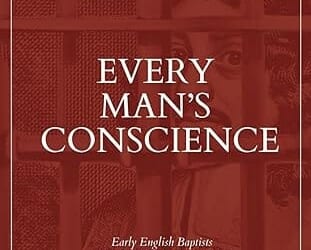Seóirse Duffy is a Conservative writer and ex-staffer who now splits his time between Westminster and Essex working with various authorities.
We’re all used to rolling our eyes when politicians (usually in red or orange ties) invoke “British values.”
Democracy, the rule of law, tolerance, liberty – the usual suspects, rattled off like the ingredients on a packaging label.
The Conservative movement, for the most part, recognises that these are not particularly British; they are the default setting of any liberal democratic society. France has them. Germany has them. Spain has them. Calling them “British” is a polite fiction, a way to gesture at national identity without having to name anything culturally specific or historically complicated that may cause people on the edges of the in-group discomfort.
But if we’ve mostly agreed to see through that, the question is: when will we as a party apply the same critical lens to the laziness with which Conservative values have been beige-ified?
The term is just as frequently invoked and just as vague, and yet gets far less scrutiny – sometimes it actively gets support.
Ask many Conservatives what these values are, and the answer will usually involve some sort of cocktail of “low taxes,” “a small state,” “supporting families,” and perhaps “pride in Britain.” These are principles, to be sure. But they are not uniquely Conservative, and they are certainly not the basis of a worldview that shapes how an individual engages with it. They are the SEO tags on a tiktok video that someone has emphatically pasted out as their own belief.
“Small state, low tax, strong families” could just as easily be the slogan of an American Republican or an Australian Liberal. It’s a globalised, post-Thatcher ideological reflex – not a coherent expression of Conservative tradition, but rather a spell formulated to be as broadly appealing to the at-times-contrarian views of the public.
Yet the phrase “Conservative values” is still treated as if it invokes some deep-rooted national soul.
Can many draw cohesive areas of agreement between post-2000 Conservative leaders and pre-1975 ones? Conservatism was about preserving institutions, managing change cautiously, and protecting the social fabric. The values it prized were duty, order, hierarchy, cultural inheritance, civic responsibility, and a scepticism of utopian ideology. Today’s values of individualism and free market economics are no less valid, but how many can truly articulate what makes these beliefs Conservative, and why?
We live in times and circumstances that are worlds away from 1990, 1970, 1950; where social, economic and political upheaval have transformed public attitudes and values. But yet we have not stopped, it seems, to consider what our long-held beliefs actually resemble in the modern age. We have carried their coffins in the funeral march for so long that I fear some of us have forgotten what they looked like before the lid was shut.
This week Conservatives have rushed to call Nigel Farage & Reform “left wing” for wanting to abolish the two-child cap and nationalise British steel. Our Party policy is to reintroduce the Winter Fuel Payments, and whilst in Government we de facto nationalised companies like Northern Rail. The result is it makes the attack look cheap, and worse makes our values look like convenient fads that we drop when it is expedient for a few votes. We’re not landing blows on the basis of a fundamental disagreement; we’re throwing the kitchen sink desperately at a party who’s ethos is more clearly defined and hoping to knock it over. Comrades: we will not.
The collapse of meaningful content behind “Conservative values” mirrors the hollowness we see in official talk of “British values.” Both deploy lofty rhetoric while quietly flattening everything that makes it distinctive or meaningful. We reduce national character to a set of bullet points designed for PowerPoint slides and press releases; we make party values a vague checklist or purity test. We mistake branding for belief.
This is not just a semantic problem. It has consequences. If Conservatism becomes indistinguishable from generic market liberalism, then there is no reason for voters to prefer it to Labour, Lib Dems, or anyone else with a decent economic policy. We already know that if “British values” are just global values with a flag attached, then people arriving here feel limited reason to associate with them: why can we not see this of our own party?
A serious politics of either kind would require a return to rootedness – to the actual, sometimes uncomfortable specifics of our national and political traditions. For Conservatives, that would mean recovering a language of patrimony, place, and duty, not just efficiency, enterprise, and deregulation. It would mean talking seriously about the value of institutions, culture, stability, and yes, even the class system – not to entrench inequality, but to understand how British society actually works and evolves, and to map out the obligations that every person owes the world when they get out of bed in the morning.
The public can smell insincerity. Just as they roll their eyes at “British values,” many now roll their eyes at “Conservative values” too – not because they hate their country or the Conservative Party, but because they can sense that what’s being sold to them isn’t real. It’s advertising copy, not conviction.
And so the question for modern Conservatism is this: if your values are indistinguishable from those of any global free-market party – if they amount to a handful of tax policies and nostalgic gestures – then what exactly are you conserving?



![Former Bravo Star Charged After Violent Assault Using a Rock-Filled Sock in Tennessee Walmart [WATCH]](https://www.right2024.com/wp-content/uploads/2025/07/Former-Bravo-Star-Charged-After-Violent-Assault-Using-a-Rock-Filled-350x250.jpg)



![NYC Man Snatches Child Off The Sidewalk, Parents Chase Him Down [WATCH]](https://www.right2024.com/wp-content/uploads/2025/07/NYC-Man-Snatches-Child-Off-The-Sidewalk-Parents-Chase-Him-350x250.jpg)
![Karoline Leavitt Levels CNN's Kaitlan Collins and Other Legacy Media Reporters [WATCH]](https://www.right2024.com/wp-content/uploads/2025/07/Karoline-Leavitt-Levels-CNNs-Kaitlan-Collins-and-Other-Legacy-Media-350x250.jpg)
![Man Arrested After Screaming at Senators During Big Beautiful Bill Debate [WATCH]](https://www.right2024.com/wp-content/uploads/2025/06/Man-Arrested-After-Screaming-at-Senators-During-Big-Beautiful-Bill-350x250.jpg)

![Leftists Lose Their Minds After Jason Kelce Celebrates Being an American [WATCH]](https://www.right2024.com/wp-content/uploads/2025/07/Leftists-Lose-Their-Minds-After-Jason-Kelce-Celebrates-Being-an-350x250.jpg)





